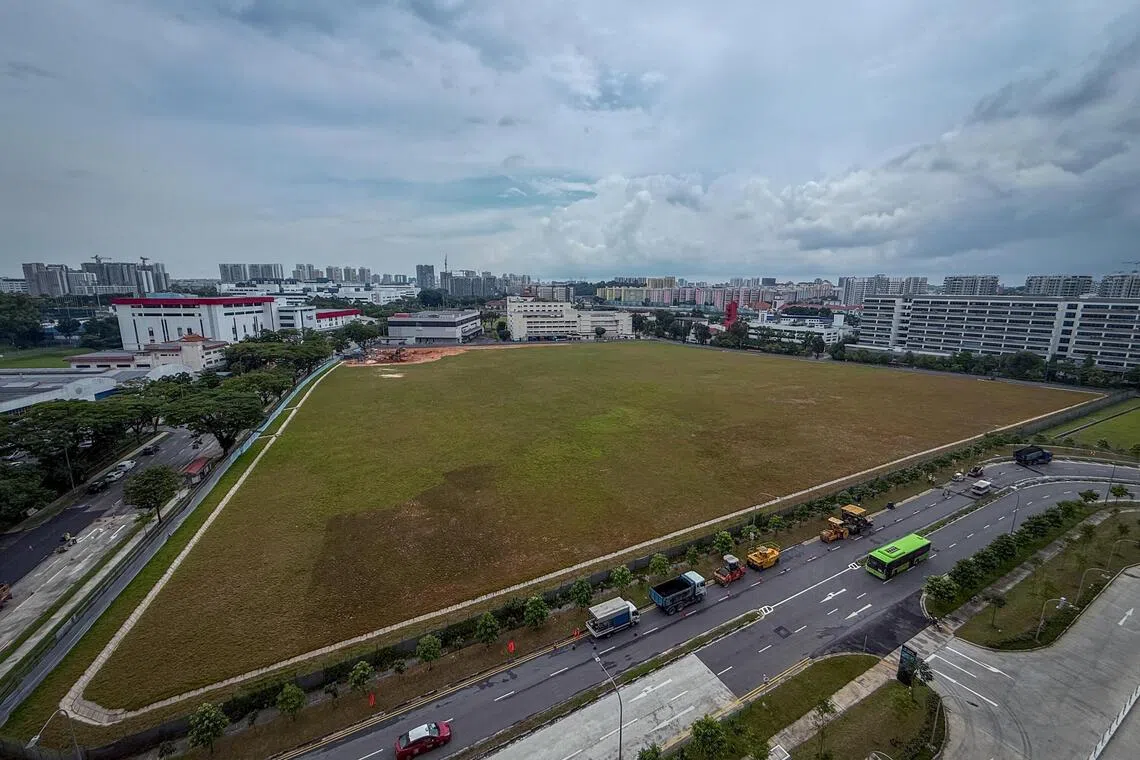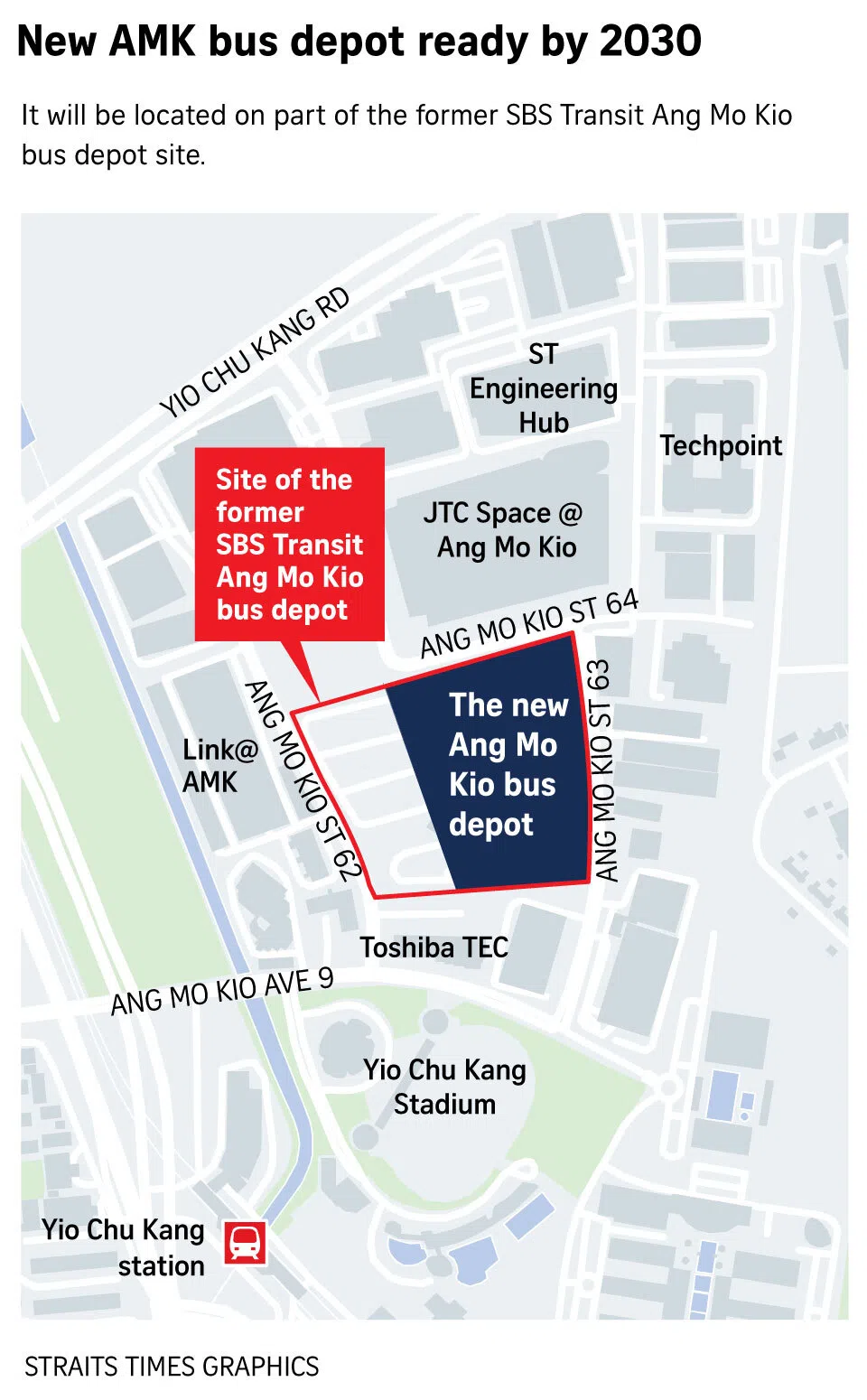New multi-storey Ang Mo Kio bus depot with staff quarters to be ready by 2030
Sign up now: Get ST's newsletters delivered to your inbox

The new depot will have a 10-storey staff quarters building that can house some 350 transport workers.
ST PHOTO: JASON QUAH
- A five-storey bus depot will be built in Ang Mo Kio Street 63 starting in 2026 and completing by 2030, with capacity for 450 buses.
- The new depot will support electric buses with charging systems and a special water tank to submerge faulty electric buses to prevent battery re-ignition.
- The depot will feature staff quarters, operational facilities and sustainable features, and will be handed over to the public transport operator for outfitting upon completion in 2030.
AI generated
SINGAPORE – A new multi-storey bus depot will be built at Ang Mo Kio Street 63, with works slated to begin in 2026 and be completed by 2030.
The Land Transport Authority (LTA) called a tender for its design and construction on Sept 19. The depot will be five storeys tall, with a 10-storey staff quarters building that can house some 350 transport workers, including bus captains.
The new 4.5ha depot – which will occupy around 70 per cent of the site of the former SBS Transit Ang Mo Kio bus depot – will accommodate parking and maintenance for 450 buses, up from 438 buses in the previous depot.
It will fit at least 50 bendy buses that are 18m in length on its upper two floors, as well as 400 single- and double-deck buses that are 12.5m long on the remaining floors.
The upcoming depot will have operational facilities such as a bus operations control centre, an administration office, crew resting areas, a lounge for bus captains, and a canteen.
It will include environmentally sustainable features such as green roofs, solar power systems and rainwater recycling systems.
Operations at the former SBS Transit Ang Mo Kio bus depot ceased in January, and buses previously housed there were moved to the Sengkang West
The remaining portion of the site not taken up by the upcoming bus depot has been zoned for business use, according to the Urban Redevelopment Authority Draft Master Plan 2025.
Responding to queries from The Straits Times, LTA said on Oct 2 that the new depot will feature large-scale, high-powered electric vehicle charging systems to support the deployment of electric buses.
According to tender documents published on government procurement portal GeBiz, the new depot will also be equipped with three bus bays outside the bus depot building for faulty electric buses. One of the bays will double as a water tank for submerging faulty electric buses when needed, said LTA.
Burnt electric buses will be towed into this bay to bring down the temperature of their batteries by pumping water into the tank to prevent a re-ignition of fires
Electric vehicle fires tend to burn at higher temperatures than conventional fires, as lithium-ion – the most prevalent battery technology for electric vehicles – burns at around 2,760 deg C, which is hot enough to melt steel and concrete.
This reinforced concrete water tank, measuring 14m by 4.5m by 3.5m internally, will feature a movable gate that will open to allow a burnt electric bus to be towed in, before being closed to allow water to fully fill it up. It will also be roofless.
With its staff quarters, the new Ang Mo Kio depot will be similar to the Sengkang West bus depot, which opened in January.

Asked if accommodation for transport workers will be a feature of all upcoming bus depots, LTA said it will assess the need for such facilities based on operational needs and site conditions.
LTA said it is unable to make known the route packages that the new depot will serve at this point as operational plans may change. More details will be announced when they are ready.
Public transport operators have to bid for the right to operate bus services under route packages, which are typically classified by geographical regions. There are currently 14 bus route packages managed by four operators in Singapore.
Following the planned completion of the depot in May 2030, it will be handed over to the public transport operator leasing it to carry out outfitting and preparatory works before operations start, said LTA.



